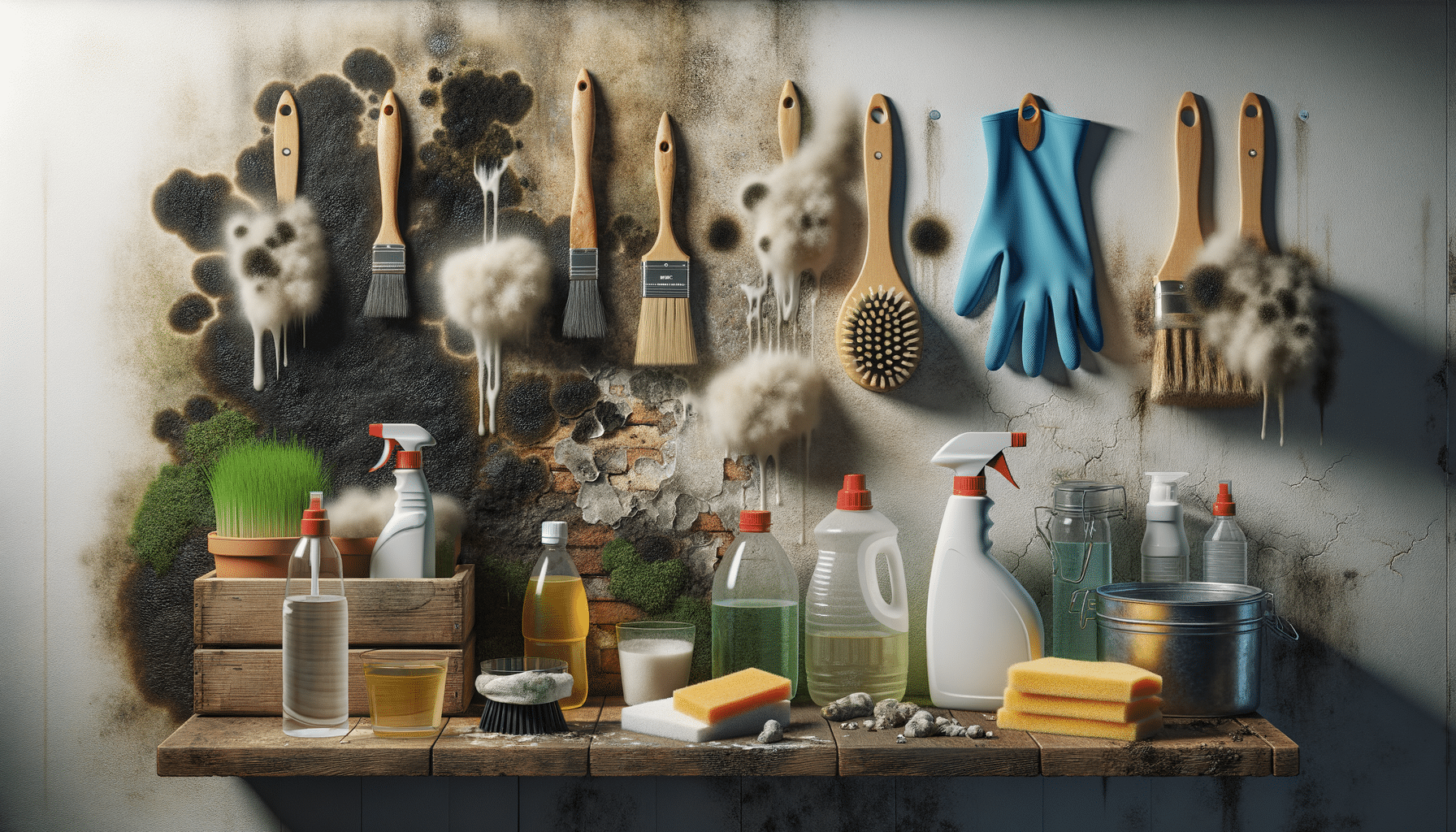
How to naturally treat black mold
Understanding Black Mold: A Silent Intruder
Black mold, scientifically known as Stachybotrys chartarum, is a common household problem that can lead to serious health issues if not addressed promptly. Often found in damp, humid areas, black mold thrives in environments where moisture is prevalent. This makes basements, bathrooms, and kitchens prime locations for its growth. The presence of black mold is not only unattractive but can also trigger allergies, respiratory problems, and even more severe health conditions in vulnerable individuals.
Identifying black mold is crucial for effective removal. It typically appears as dark green or black patches, often accompanied by a musty odor. The key to managing black mold is early detection and intervention. Ignoring its presence can lead to structural damage in your home, as mold can weaken walls and ceilings over time.
To effectively combat black mold, it’s essential to understand its growth conditions. Mold spores are naturally present in the air, but they require moisture and organic material to flourish. By controlling humidity levels and ensuring proper ventilation, you can significantly reduce the risk of mold growth in your home.
Natural Remedies for Black Mold Removal
While there are various chemical solutions available for mold removal, many homeowners prefer natural methods due to their safety and environmental benefits. Natural remedies are not only effective but also non-toxic, making them ideal for households with children and pets.
One popular natural solution is white vinegar. Its acidic nature makes it a formidable opponent against mold. Simply spray undiluted white vinegar onto the affected area and let it sit for an hour before wiping it clean. Another household staple, baking soda, can also be used to scrub away mold. Create a paste with water and baking soda, apply it to the moldy surface, and scrub gently.
Tea tree oil, known for its antifungal properties, is another excellent option. Mix a teaspoon of tea tree oil with a cup of water in a spray bottle, and apply it to the mold-infested area. Leave it to dry naturally without rinsing, as the residual oil will continue to fight mold spores.
- White vinegar: Spray and wipe after an hour.
- Baking soda: Create a paste and scrub gently.
- Tea tree oil: Mix with water, spray, and leave to dry.
Preventing Mold Growth in Your Home
Prevention is always better than cure when it comes to mold growth. By taking proactive measures, you can maintain a mold-free environment and protect your home from potential damage. Here are some strategies to prevent mold growth:
- Control humidity levels: Use dehumidifiers in damp areas and ensure your home is well-ventilated.
- Fix leaks promptly: Any water leaks should be repaired immediately to prevent moisture accumulation.
- Use mold-resistant products: Consider using mold-resistant drywall and paints in areas prone to dampness.
- Regular cleaning: Keep surfaces clean and dry, especially in bathrooms and kitchens.
- Monitor indoor plants: Overwatering plants can increase indoor humidity levels, so be mindful of their watering needs.
Implementing these preventive measures can significantly reduce the likelihood of mold growth, ensuring a healthier living environment for you and your family.
Health Implications of Black Mold Exposure
Exposure to black mold can have varying health effects, depending on the individual’s sensitivity and the extent of exposure. Common symptoms include nasal congestion, coughing, skin irritation, and eye redness. For individuals with asthma or allergies, mold exposure can exacerbate their conditions, leading to more severe respiratory issues.
In rare cases, prolonged exposure to black mold can result in more serious health problems, such as immune system suppression and lung infections. It is crucial for individuals experiencing persistent symptoms to seek medical advice and address mold issues in their living environment.
Understanding the health implications of mold exposure underscores the importance of timely intervention and effective mold management. By addressing mold problems promptly, you can protect your health and the well-being of your loved ones.
When to Call in the Professionals
While natural remedies can be effective for small mold infestations, there are times when professional intervention is necessary. Large-scale mold problems, especially those affecting structural components of your home, require the expertise of mold remediation specialists.
Professionals have the tools and knowledge to safely remove mold and prevent its recurrence. They can also conduct thorough inspections to identify hidden mold growth that may not be visible to the naked eye. If you notice extensive mold coverage, persistent musty odors, or health symptoms that do not improve, it may be time to consult with experts.
Choosing to hire professionals ensures a comprehensive approach to mold removal, safeguarding your home and health. It’s an investment in peace of mind, knowing that your living space is free from harmful mold.